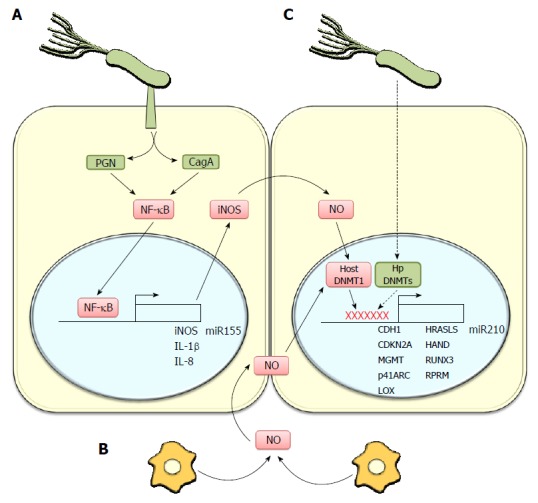Figure 1.

Helicobacter pylori-linked inflammation promotes methylation of genes associated with tumor suppression. A: Helicobacter pylori (H. pylori) induces, via injection of the virulence factors CagA and peptidoglycan (PGN), NF-κB activation, promoting a pro-inflammatory response that increases the expression of cytokines (IL-1β, IL-8) and inducible nitric oxide synthase (iNOS). The latter generates nitric oxide (NO) a mediator of inflammation. Furthermore, the H. pylori-linked activation of NF-κB promotes miR-155 expression, a microRNA associated with gastric pathologies; B: In addition to the direct effects of H. pylori on gastric epithelial cells, the infection activates macrophages, which increase NO production and NO levels in gastric epithelial cells. NO can activate DNA methyltransferase 1 (host DNMT1) to promote DNA methylation in several gene promoter regions; C: Also H. pylori DNA Methyltransferases (Hp DNMTs) may directly promote host DNA methylation in the promoter regions of several genes thought to function as tumor suppressors in gastric cancer. Moreover, infection is associated with promoter methylation and decreased expression of miR210, a miRNA which targets mRNAs implicated in stem cell survival, stalling of the DNA repair system, induction of angiogenesis and cellular differentiation, among others.
